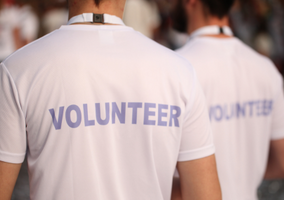More than 110 million annual hours of volunteering by older people have been lost in a “post-pandemic slump”, new research has revealed.
The State of Ageing 2025 report, published today by the Centre for Ageing Better, revealed that more than one million older people stopped volunteering regularly in England after the pandemic.
While over-50s age groups still have among the highest rates of volunteering, levels have not recovered since the end of the pandemic.
This has led to 1.16 million fewer people aged 50 and over engaging in formal volunteering at least once a month in 2024 compared with 2019, while there are 632,000 fewer people aged 50 and over doing informal volunteering at least once a month.
The decline equates to more than 110 million lost formal volunteering hours per year since the pandemic and the resultant lost economic value per year could be as high as £4bn.
While Covid-19 restrictions directly prevented some people from volunteering, health problems or old age were more common reasons cited by older people. Other factors included not having enough time because of changing home or work circumstances – indicating that the cost-of-living crisis has potentially had a big impact on volunteering rates.
Most likely age group to volunteer still 65-74
The report also revealed that people aged 65 to 74 remain the age group most likely to volunteer.
However, the rate of regular formal volunteering among this age group fell from 31% pre-pandemic to 22% in 2020-21, and had recovered by only one percentage point since, the research found.
Meanwhile 23% of people aged 50 to 64 volunteered formally at least once a month before Covid, the report said. This has now fallen to 16%.
Among people aged 75 and over, 21% now volunteer formally at least once a month compared with 25% in 2019/20.
Informal volunteering rates plummet
Rates of regular informal volunteering, meanwhile, fell to their lowest for at least eight years in 2023-24, the report revealed.
While there was an initial spike in regular informal volunteering during the pandemic for most older age groups, rates have continued to fall since, for the population as a whole and for all age groups aged 50 and over.
As part of the research for the State of Ageing 2025 report, the Centre for Ageing spoke with community groups in Knowsley and Middlesbrough to understand their experiences of ageing.
Many older people commented on an enduring “strong sense of community” fuelling informal volunteering in their neighbourhoods. But participants also said the loss of community bonds as well as cuts to services had led to increased caring responsibilities, social isolation and people feeling “forgotten and invisible”.
Slump is ‘hugely concerning’
Dr Carole Easton OBE, chief executive at the Centre for Ageing Better, said: “The scale of the post-pandemic slump in older people volunteering is hugely concerning and should serve as a wake-up call.
“The country is missing out on a huge thrust of people power, to the significant detriment of those who want to volunteer but currently don’t, and the countless communities and individuals who stand to benefit from volunteer work.
“Older people in England play a vital, and often underappreciated, role in society, including through volunteering, caring and civic participation. But it is clear that there are significant barriers, including ageism and inequality, digital exclusion and cutbacks, that are severely curtailing older people’s ability to contribute.
“We need every local authority in the country to become an Age-friendly Community in order to ensure that the planning and design of our communities help people to age well and contribute for as long as possible.”












